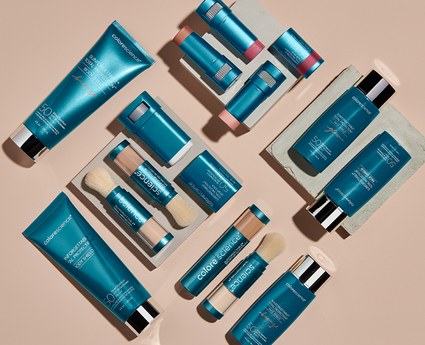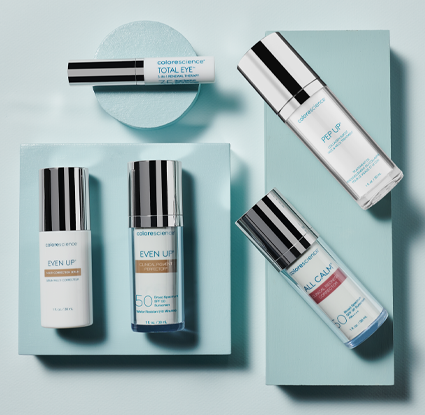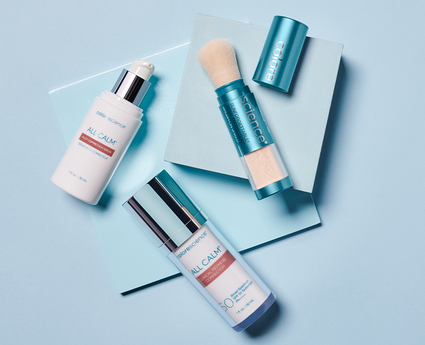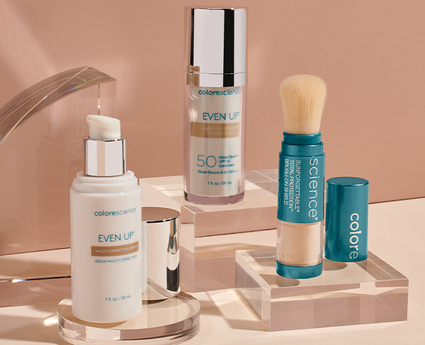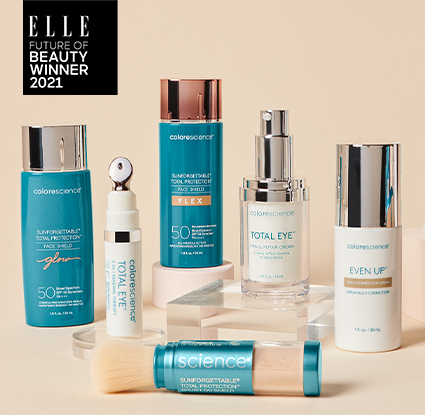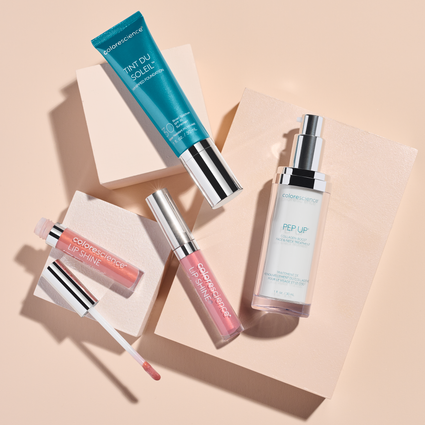Does Makeup Age Your Skin? What You Need to Know
If you’re into makeup, chances are you’ve encountered many different brands. They all tout what makes them the best, list their ingredients, and have many options. This can be a bit overwhelming, especially when you may not know what you want. One of the main questions when evaluating these products is: can makeup age your skin?
In this article, we’ll unpack this question, discussing the different ingredients used, and types of makeup that could contribute to premature aging. We’ll address some of your most pressing questions, such as, “does makeup make you age faster?” and more specifically “does foundation age your skin?”, among others. Keep reading to find out how the products you’re wearing may impact your ability to age gracefully.
- Does makeup make your skin age?
- What Are the Effects of Makeup on Your Skin?
- Makeup Ingredients to Avoid
- How to Protect Your Skin from Premature Aging
Does Makeup Age Your Skin?
While “does makeup age your skin?” is a fair question, the more applicable one is, “can makeup age your skin?” And the answer to the latter question is yes, but not always.
Many people often hear about aging gracefully, but the way you live and some of the products you use can have a major impact on your complexion—in addition to factors like UV radiation and chemicals. While some people use makeup because they think it may make them look younger, it’s important to consider what’s in the makeup. Many people often wonder if foundation ages their skin. While it’s a valid question, knowing what’s in the foundation and all your makeup products can help better answer the question.

Above and beyond your makeup, it also comes down to your sunscreen and SPF products, which are critical to protecting your complexion and maintaining a youthful appearance. The sun can be damaging to the skin, so you should use sunscreen on your face as a rule of thumb. In fact, most companies have SPF in makeup just to make sure your skin is protected throughout the day.
What Are the Effects of Makeup on Your Skin?
Makeup can potentially have negative effects on your skin if you aren’t keeping up a good skin care regimen, and you are using makeup with ingredients that harm, not help your skin. Maintaining your makeup and using it the right way can help prevent damage.
Bad makeup habits can speed up the process of aging skin. However, having a detailed skin care regimen that includes removing makeup and washing your face every day makes a difference. Here are a few things to keep in mind:
- When cleaning your skin, do not scrub, but use gentle circular motions.
- Check the type of cleanser you are using to avoid abrasive chemicals.
- When rinsing, use lukewarm water.
Another thing to consider is that it’s easy for bacteria to hide in makeup brushes, sponges, and other items frequently used on the face. Applying makeup with clean brushes helps prevent pollutants and bacteria from clogging your pores and irritating the skin.
Make sure to clean your makeup brushes—ideally, once a week—to ensure you always have the best conditions for using makeup on your face.

Makeup Ingredients to Avoid
There are a number of ingredients to avoid that can be toxic to your skin. Chemicals, fragrances, and harsh and abrasive ingredients are at the top of the list.
While the Federal Food, Drug, and Cosmetic Act requires manufacturers in the U.S. to report the safety of their products to the FDA, cosmetics do not usually go through testing as rigorous as drugs for premarket approval unless it has color additives. On the bright side, cosmetics with sunscreen are considered a cosmetic and a drug.

Talcum powder, alcohols, and sulfates should not be used on the skin. The product label should be able to provide additional information, but some of the names are so scientific that many people avoid them. Here is a running list of chemicals found in makeup products you should avoid:
- Coal tar dyes
- Parabens
- Fragrance ingredients
- Petroleum jelly or petrolatum
- Butylated hydroxyanisole (BHA) or butylated hydroxytoluene (BHT)
- DEA, or Diethanolamine
- Formaldehyde-releasing preservatives or formaldehyde
- PEG compounds or polyethylene glycols
- Triclosan
- Silicones
- Sodium laureth sulfate
How to Protect Your Skin from Premature Aging
So, how can you protect your skin from some of the potentially harmful effects of makeup? Here are some tips, including those recommended by the American Academy of Dermatology Association:
- Protect your skin: If you’re going to wear makeup, choose a foundation that’s good for your skin. Make sure it doesn’t have any of the ingredients listed that can have adverse effects. SPF in makeup is one of the best ways to wear makeup and add an additional layer of protection.
- Get enough sleep: You also want to get enough sleep to prevent wrinkles. The term “beauty sleep” does have merit. When you don’t get enough sleep, it starts aging the skin. It starts subtly with dark circles, dull skin and the appearance of acne. When you don’t get enough sleep, you’re stressing the body which starts affecting the way you look.
- Stay away from or protect your skin from the sun: It’s easy to run out of the house to do errands with the idea of running to the car and into the store. No matter what you do, the sun can affect your skin. Wearing sunscreen, sunglasses, and protective clothing when you can has a positive effect on protecting your skin. While you may not think the sun is affecting the skin on your face, every time you are outside, the sun has an impact.
- Stop smoking: Beyond makeup, smoking can be very detrimental to the skin. Smoke causes wrinkles and quickly changes your complexion.
- Use self-tanner: Some people enjoy staying out in the sun to get a tan. While sunscreen does offer some protection, the longer you stay in the sun, the more the skin is affected. If you are someone who likes to tan outside, using a self-tanner instead of tanning in the sun or using tanning equipment.
- Clean your skin: Washing your face twice a day and after a workout keeps perspiration away and the likelihood of your skin being affected by the makeup worn throughout the day.
- Be gentle with your skin: When washing your face, use gentle cleaners and take the time to avoid scrubbing. This irritates the skin and accelerates the aging process.
- Use moisturizer: It’s always good to moisturize your skin under foundation. This helps keep your skin hydrated and youthful. Many skincare regimens have a morning and an evening moisturizer to provide extra moisture all day long.
- Stay away from products that burn: There are certain makeup and facial products that irritate the skin. If you are using something that makes your skin feel like it is burning or peeling, stop using it. Irritated skin makes it look older.
- Cut down on alcohol: Alcohol dehydrates the skin which damages it over time. This can result in premature aging.
- Eat healthy: Eating healthy and drinking enough water play an important role in keeping your skin youthful and healthy.
- Take Vitamin C: There are skincare products that have Vitamin C that can help the skin by boosting collagen production and improving elasticity.
Above and beyond these tips, sunscreen and quality makeup are key. Mineral makeup, like Colorescience products, is made with natural ingredients and can be much safer and gentler on skin. Mineral makeup is also known to reduce skin problems and help with acne.
SPF is also often used in makeup because it can help provide additional protection for the delicate skin on your face. In addition to SPF in makeup, sunscreen is essential for maintaining skin health—including keeping it looking as youthful as possible—while reducing the risk of cancer.
 If you want to keep you skin looking healthy and youthful, here are a few options to consider from Colorescience:
If you want to keep you skin looking healthy and youthful, here are a few options to consider from Colorescience:
- Natural Finish Mineral Foundation SPF 20 that hydrates and protects the skin in 7 shades.
- Skin-perfecting primers that provide sun protection, diminish fine lines, and pore size while improving skin texture, tone, and finish.
- Mineral sunscreen options that are chemical-free but provide sun protection. They are light enough to apply and reapply throughout the day for continued support.
- Skin treatments that help reduce the sign of aging with ingredients that help boost collagen production, enhance your skin texture and tone, and reduce the appearance of wrinkles.
Look Your Best While Protecting Your Skin with Colorescience
Makeup works wonders and can help add a smooth and even look and tone. However, when used incorrectly or having the wrong products on your face, the effects can damage the skin.
The makeup you use has a direct effect on the aging process, so you want to make sure you keep the tips above in mind like washing your face at the end of the day, using makeup that doesn’t have harsh, chemical ingredients, and wearing makeup with SPF.
Now you have the answers to those burning questions like “does makeup age your skin?” and know what to look out for, you’re in a better position to ensure that you age as gracefully as possible. While aging is a natural process, practicing certain skin care habits can help your skin look youthful for many years.
Are you ready to protect your skin from premature aging? Add Colorescience's award-winning mineral cosmetics to your beauty and skin care regimen to see how easy it is to create beautiful makeup looks without further harming your skin.

